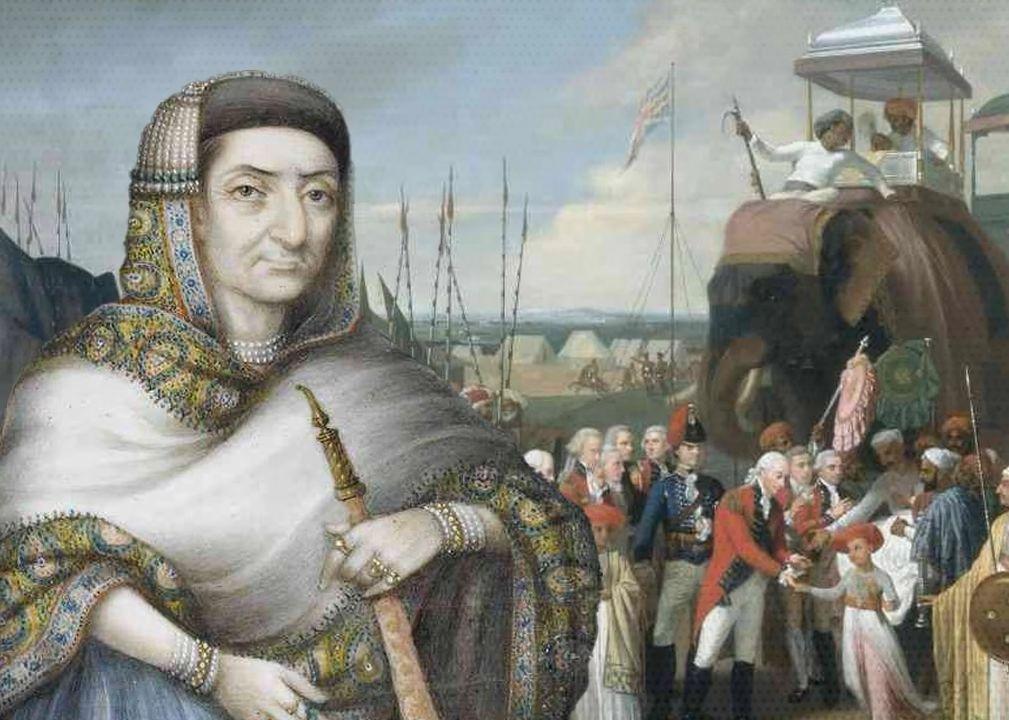
Women Entrepreneurs in Indian History: Begum Samru & Jibhabu
The history of entrepreneurship in India is replete with stories of men who have made their mark on the business world. However, there are also numerous women who, despite the societal norms and challenges of their time, have achieved remarkable success and left a lasting legacy. Two such women are Begum Samru and Jibhabu, who defied convention with their financial expertise and strategic leadership in the 18th and 19th centuries.
Begum Samru: A Diplomatic Ruler
Begum Samru, also known as Jeanne Marie Clemence, was a French courtesan who rose to become the ruler of a 621-square km estate in Sardhana, Uttar Pradesh. Born in 1753, she was sold into slavery at the age of 11 and eventually became the mistress of a wealthy nawab. After his death, she married him and inherited his estate.
Begum Samru was not only a beautiful woman but also a shrewd businesswoman. She used her diplomatic skills to maintain good relations with the British East India Company and the Maratha Empire, ensuring that her estate remained prosperous and secure. She was known for her intelligence, courage, and strategic thinking, which helped her navigate the complex web of alliances and rivalries between the various powers of the time.
Under her rule, the estate of Sardhana flourished, and Begum Samru became one of the most powerful women in India. She was also a patron of the arts and architecture, commissioning several buildings and monuments that still stand today. Her legacy extends beyond her business acumen and diplomatic skills, as she also promoted education and healthcare in her estate.
Jibhabu: A Negotiator Extraordinaire
Jibhabu, also known as Jibhabai, was a Gujarati woman who lived in the 19th century. She was born into a family of merchants and traders, and her parents had established a successful business in the textile industry. However, when the East India Company began to exert its influence in Gujarat, Jibhabu’s family faced financial difficulties and lost control of their business.
Undeterred, Jibhabu took matters into her own hands and began to negotiate with the East India Company to restore her family’s land revenue business. She used her skills of persuasion and diplomacy to convince the Company to give her family’s business a fresh lease of life.
Jibhabu’s negotiating skills were unmatched, and she was able to secure a favorable deal for her family. She not only restored their business but also expanded it, making it one of the most successful textile companies in Gujarat. Her business acumen and strategic thinking earned her the respect and admiration of her contemporaries, and she became a role model for women entrepreneurs in Gujarat.
Lessons from These Pioneering Women
The stories of Begum Samru and Jibhabu are a testament to the power of women entrepreneurs in Indian history. Despite the societal norms and challenges of their time, they defied convention and achieved remarkable success through their financial expertise and strategic leadership.
Their stories offer several lessons for women entrepreneurs today. Firstly, they demonstrate the importance of diplomacy and negotiation in business. Both Begum Samru and Jibhabu used their diplomatic skills to achieve their goals, and their ability to build relationships and navigate complex situations was key to their success.
Secondly, their stories highlight the importance of financial literacy and entrepreneurship. Both women were able to identify opportunities and take calculated risks to build their businesses, demonstrating the importance of financial education and entrepreneurship skills for women.
Finally, their stories offer a powerful reminder of the impact that women entrepreneurs can have on their communities. Begum Samru and Jibhabu were not only successful businesswomen but also patrons of the arts and education, using their wealth and influence to promote the well-being of their communities.
Conclusion
The stories of Begum Samru and Jibhabu are a reminder of the significant contributions that women have made to Indian history. Despite the challenges and obstacles they faced, these women entrepreneurs defied convention and achieved remarkable success through their financial expertise and strategic leadership.
Their legacies offer valuable lessons for women entrepreneurs today, highlighting the importance of diplomacy, financial literacy, and entrepreneurship. As we celebrate the achievements of these pioneering women, we are reminded of the impact that women can have on their communities and the importance of promoting education, entrepreneurship, and financial literacy for women.
Source:
https://ascendants.in/business-stories/pioneering-women-entrepreneurs-history/






